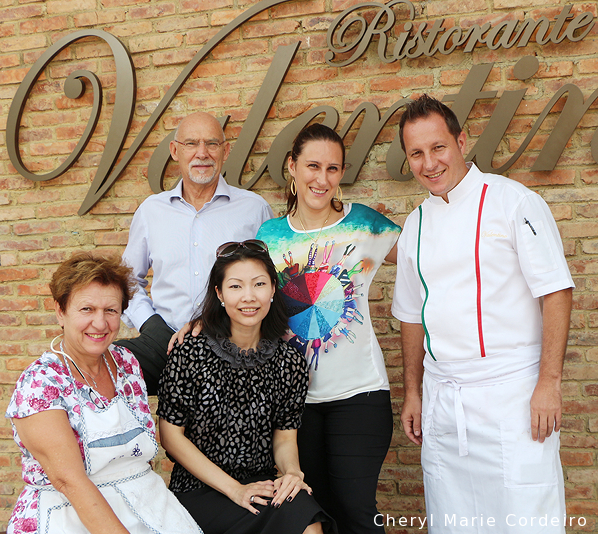
Visiting Valentino’s in Singapore have by and by become a meeting with the Valtulina family. It is pleasant beyond description to be welcomed by familiar faces and even better having your own guests treated as if you were just a big family having waited much too long to finally see each other again.
Text & Photo © JE Nilsson, CM Cordeiro 2014
Across the outdoor patio seating of Ristorante Da Valentino in Singapore is a small spice garden. The restaurant is the venture of the Valtulina family. A place I have over time come to regard as a little home away from home, and a place I am always happy to revisit as occasions occur.
Regarding the little garden. We had actually talked ourselves into this little gem mainly in the care of Gianpiero Valtulina, or Papa Gianni, by showing a genuine interest. And while excusing himself for “its many shortcomings”, he showed us around, showed us what were to be and complained – as all true farmers at heart – about the soil, the weather, the sun, the rain and the climate in general, with a smile.